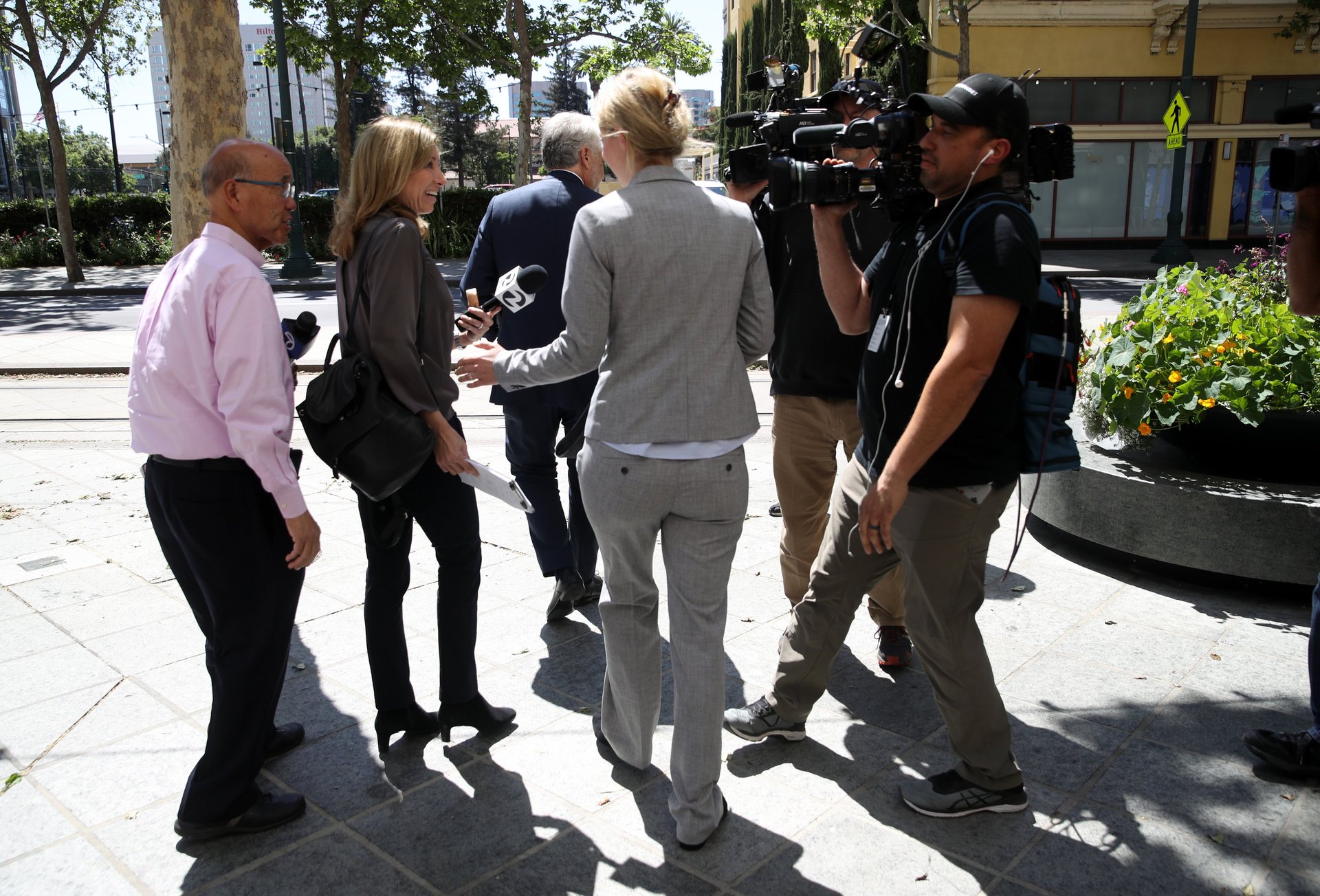Elizabeth Holmes deserves neither your pity nor your attention
America's prisons are full of mothers—that we feel bad for this one shows the power of white privilege

Elizabeth Holmes, the former CEO of the fraudulent blood-testing startup Theranos, just started her 11-year prison sentence on May 30, a month after she was initially expected to, after enjoying one last beach day with her husband and their two small children: William, two, and Invicta, only months old.
Suggested Reading
“The fact that she is a young, new mother is going to play into any potential sentence,” said Caroline Polisi, a federal criminal defense attorney, in The Dropout, the ABC News podcast about the Theranos trial. It sure did: For one, the trial was delayed when she was pregnant with her first child; and the timing of her reporting to prison was likely influenced by the fact that she gave birth to her second child just over three months ago.
But the new mother identity is serving Holmes in another way, too: She is garnering at least some degree of pity—sympathy, even—from observers in the media. “No matter what you think about her, it’s really sad to see someone who is about to go away for 11 years, with two babies,” writer Amy Chozick said in a podcast about her profile of Holmes for the New York Times. “She is leaving behind two young children, the timing of whose births almost certainly pushed back the start date of her sentence, but that nonetheless constitutes a circumstance deserving of pity,” echoes Emma Brockes in the Guardian.
It probably does. But American prisons are full of mothers—and the overwhelming majority deserve more sympathy than Holmes. That she is the one getting the personal spotlight, and pity as a mother separated from her kids, isn’t just a function of her profile, but of white privilege.
The mothers we care about
The vast majority of women in the US prison system are mothers. Nearly 60% of women in the country’s prisons have minor children, and so do 80% of those who are in jail. A large number of them have not even been convicted of a crime, but can’t afford to pay bail. They are overwhelmingly poor, women of color, and disproportionately Black—they couldn’t be more different from Holmes.
These women often face extreme sentences for minor crimes, like the young mother of four who was sentenced to 12 years for selling $31 worth of pot, the pregnant woman who was kept in jail and forced to sleep on the floor because she was caught smoking marijuana, or the mother of four who was sentenced to life in prison for marijuana possession.
These are likely women who faced much harder circumstances that Holmes. They are the ones who deserve pity and attention—often outrage, in fact. But Holmes is not a victim of the system. If anything, she manipulated it to her advantage. The births of her children suggests she didn’t much think about the possibility of her arrest—that is, if she didn’t outright plan them with the trial in mind. Pregnant women of fewer means don’t get the luxury to report late: Hundreds of babies are born to detained mothers, and nearly 60,000 pregnant people go through the prison system each year.
Who Holmes really is
Yet it is Holmes’ sentence that generates pity for the incarcerated mother, the urge to “pause to think about the reality of walking up to the jail with the prospect of no release for more than a decade.” To be clear, Holmes is a female founder who paid for her crimes (if not as much as her business partner Sunny Balwani, who was sentenced to 13 years), when many men get away with faking it until they make it, sometimes at the edge of what is legal. But there is no divorcing her role from her identity.
“I didn’t expect her to be so … normal?” writes Chozick of Holmes in her profile, describing their first encounter. There is so much to read in between the lines of that observation, which comes after mention of a quaint beach rental home, a breakfast of croissant and berries, singalongs to Ace of Base, long walks with a 150-pound dog. Normal—just another privileged white lady.